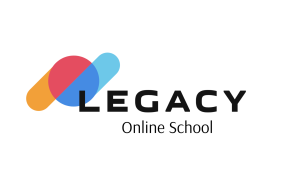Contents
More than 80% of parents choose homeschooling for their children due to concerns about safety, drugs, or negative peer pressure, according to the National Center for Education Statistics. Many high school students in 2024 are being educated through a homeschool curriculum.

Homeschool curriculum for 11th grade is a lesson plan carried out at home. Students do not attend a traditional school, giving them greater safety and freedom. Let us tell you more about this curriculum.
What Are the Best 11th Grade Homeschool Curriculum Options?
Let’s take a closer look at the best homeschool curriculum options for eleventh graders.

Exploring Comprehensive Grade Curriculum Choices
Strong eleventh-grade curriculum balances core subjects, like advanced math, lab-based science, analytical English, and U.S. or world history. Most programs connect coursework to real-world applications of statistics in math or critical document analysis in history. Dual-enrollment options give students an opportunity to earn college in high school. Advanced Placement (AP) or honors classes challenge students academically and prepare children for college.
Online School vs. Traditional Homeschooling
The choice between virtual school and traditional homeschooling depends on the family’s needs or preferences in learning styles. Read more information in this article.
Integrating Electives into the Curriculum
Electives help students learn more about their interests while building useful skills. Courses like coding or graphic design teach practical abilities for future jobs. Including electives makes learning more enjoyable for children. Learn more about elective options here.

How to Create an Effective 11th Grade Homeschool Curriculum?
Let’s delve into what makes the homeschooling curriculum for the eleventh class so effective.

Key Components of an Eleventh Grade Curriculum
Advanced courses in mathematics, science, English, and history are included in the eleventh-grade curriculum. The program offers preparation for college entrance tests such as the Scholastic Assessment Test (SAT) or American College Testing (ACT). Practical projects keep learning interesting for teens.
Developing Lesson Plans for Language Arts and Science
Language Arts lessons focus on writing strong essays, exploring different types of literature, and doing research. Science combines learning key ideas with hands-on experiments using simple lab kits. Projects, mixing subjects, like pairing science research with persuasive writing, make learning more connected. Using current articles or case studies shows how lessons relate to real-life events.
Incorporating Algebra and Pre-Calculus into Your Curriculum
Math emphasizes solving problems by showing practical examples, such as data analysis or exploring geometric patterns. Pre-Calculus brings in higher concepts, including the trigonometric functions and limits, which will serve to prepare students for collegiate work. Graphing calculators and software, including Desmos, make it easier to visualize complex concepts. Group projects, like designing models or solving a real-world problem, make learning interesting.
How Can Parents Support Their 11th Graders in Homeschooling?
Let’s look at ways parents can support their high schoolers at home.

Creating a Structured Learning Environment
A detailed weekly planner offsets the balance between core subjects, electives, and extracurricular activities. Noise-canceling headphones or apps like Focus@Will improve focus while studying. Changing locations where a student studies at home freshens things up and averts monotony. Large-term projects and deadlines are accounted for with tools such as Google Calendar or Trello.
Utilizing Online Resources for 11th Grade Curriculum
Online platforms like Legacy Online School provide lessons in math, science, and test preparation. Resources such as SparkNotes or Grammarly improve English and writing skills. Virtual labs and simulations expand learning for subjects like biology and physics. Many sites offer free or affordable tools, making them easy to include in homeschooling plans.
Encouraging Independent Learning in Eleventh Graders
Using project-based learning encourages students to explore subjects they are passionate about in depth. Apps like Notion or Evernote help students organize notes and create study systems tailored to their preferences. Introducing dual-enrollment programs connects students to college-level coursework for more challenges. Celebrating achievements motivates students to keep improving and exploring new topics.
What are Common Challenges with 11th Grade Homeschooling?
Let’s look at some common challenges families face when homeschooling eleventh graders.

Managing Time Effectively for Homeschooling
Block schedules help students focus on advanced subjects and test prep without feeling overwhelmed. Apps like TimeTree let students and parents plan tasks and deadlines together. Weekly check-ins ensure students stay on track and adjust their schedules if needed. Adding flexible time slots allows for extra review or catching up on missed work.
Addressing Gaps in Knowledge with Custom Curriculum
Diagnostic tools, like practice tests, help identify areas where students need extra support. Integrating subjects, such as crafting essays on historical events, makes lessons more engaging and meaningful for teens. Local tutoring centers or community study groups offer focused help for challenging topics. Regular quizzes and progress reviews show children’s growth and guide future learning plans.
Staying Motivated: Tips for Eleventh Graders
The success of eleventh graders often depends on their level of interest and motivation. Here are some tips to help children stay motivated:
- Relate coursework to future plans, like college majors or career paths, to give learning a clear purpose
- Participate in internships, volunteering, or real-world projects to make learning practical and engaging
- Incorporate short breaks with physical activity or creative hobbies to recharge and maintain focus
- Celebrate small achievements through regular check-ins, helping students feel in control and confident
- Balance harder topics with enjoyable activities or electives to keep learning balanced and interesting
Homeschooling with Legacy Online School
“Very convenient platform, it is possible to get access to the passed material and to subsequent topics. Excellent communication with a responsive tutor, who always helps to understand this or that issue. A lot of activities offered, both in-class and out-of-class activities”
Parent’s review, Niche

Legacy Online School has a structured program for high school students to go through their homeschooling. The curriculum includes core courses in mathematics, science, and language arts. The program has AP courses, dual enrollment options, and specialized electives. Certified teachers provide direct support to the students to keep them on track for graduation and college readiness. Regular assessments show where extra focus is needed for the students.
Legacy Online School gives access to virtual clubs and extracurricular activities. This helps students develop social skills and explore interests outside the classroom.










